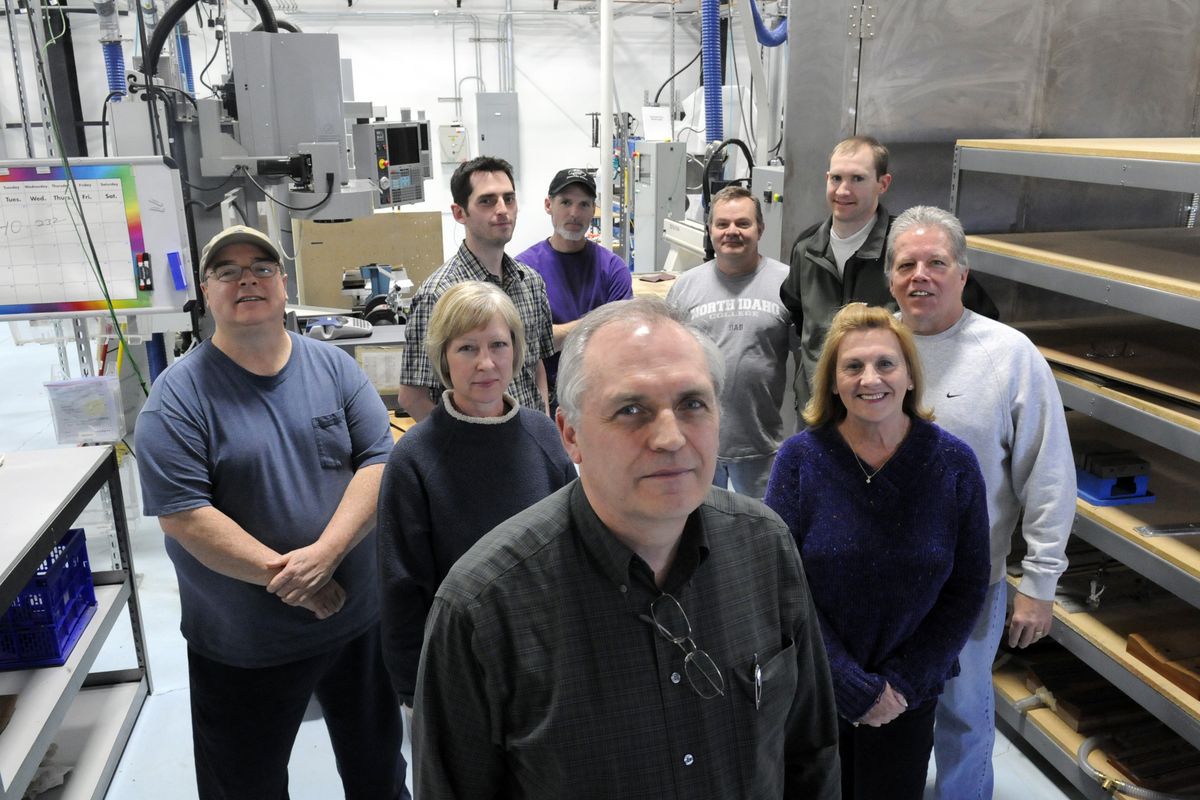Plowing retirement savings into a new venture can be a scary adventure

Business partners Don Poffenroth and Kent Fleischmann felt a bit shaky taking their 401(k) money to start their Spokane business, Dry Fly Distilling.
They knew the statistic: Half of new businesses fail within five years.
Investing retirement savings in a new venture is risky, say most financial experts. But in today’s business climate when credit is hard to find, more entrepreneurs are risking their nest eggs and hoping to be in that 50-percent group that makes it.
Retirement money earns tax-free interest. Removing funds often involves a penalty unless the contributor meets certain requirements.
Losing one’s retirement safety net in a failed business also forces the risk-taking entrepreneur to work longer and scramble for financial security into his or her 60s.
While three years is not long enough to declare Dry Fly a success, the popular Spokane craft distillery is going strong, producing three lines of gin, vodka and whiskey.
But it started on a gamble. Poffenroth, 47, and Fleischmann, who’s 57, quit longtime jobs at different companies and drew on their 401(k)s for a “large part” of the $650,000 they needed to launch the distillery.
“We looked at our options and didn’t want to bring in investors. That would have meant we’d lose more ownership than we were comfortable with,” Poffenroth said.
Another Spokane dice-roller, Dan Jorgenson, started his business six years ago using his 401(k) funds.
After working at Boeing’s Spokane West Plains plant for 14 years, Jorgenson, 58, decided to quit his job shortly after Triumph Composite Systems took over the business.
A year after leaving, he started Advanced Thermoplastic Composites Inc., a Spokane Valley company that makes super-durable plastic parts for Boeing’s new jetliner, the 787.
Along with all $80,000 from his retirement account, Jorgenson used a second mortgage on his house to bankroll the expensive equipment needed to start ATC.
His wife, Barb, a Spokane-area teacher with her own retirement funds, was “very supportive,” said Jorgenson.
But as he was getting the new company going, revenue was slow to arrive, in part because Boeing’s production of the first 787 was delayed for 24 months.
“There were times when Barb got scared, and there were times when I got scared,” Jorgenson said.
“But fortunately, they were not at the same time.”
Another Spokane company, the Spokane Entrepreneurial Center, also began in 2007 with money pulled out of retirement funds.
Its founder, Steve Salvatori, was CEO of a sales company based in Southern California. In 2006 he and his wife, Sami, began planning a move to Spokane.
In early 2007, he was reading a Spokane publication and spotted a for-sale ad for the Lorraine Building. The three-story Lorraine, at 308 W. First, was in foreclosure and was listed at $860,000.
He told Sami he wanted to buy the Lorraine and use it as a downtown commercial business center. But he’d have to use a large chunk of his retirement savings.
“She was a bit horrified,” Salvatori said.
He convinced her he’d fill the Lorraine with business tenants and the rent would generate a yearly 3 percent return.
In mid-2007 the Salvatoris moved to Spokane. Two months after opening the doors of the Lorraine, Salvatori had all 22 offices filled with tenants. Much of the credit, he said, belongs to Greater Spokane Incorporated.
The group acted as cheerleader for Salvatori’s company, inviting people to a downtown evening social event where they could learn about the Entrepreneurial Center.
In 2008 Salvatori took more money and bought a second downtown commercial building, the Plechner at 608 W. Second Ave.
The two buildings today have 46 commercial spaces and just a single vacancy. The tenants are a cross-section of early stage startups, sole proprietorships and professionals who need affordable office space without a lease.
Salvatori, who’s 55 and running for Spokane County commissioner, provides utilities, parking, conference rooms and free broadband with the rent.
“This is my passion,” Salvatori said. “I’ve always been a strong believer in small businesses.”
Those who argue against using retirement money for a new business insist that other sources of capital should be tapped first. The usual options include a Small Business Administration loan, a home-equity loan, investors, and seed money from friends and family.
Mike Alfred, who last year started retirement-fund analysis site Brightscope, said he relied on lines of bank credit plus credit cards to make it through his first year. “Using a 401(k) should be the last place a person turns to,” he said.
Poffenroth and Fleischmann say their appetite for risk came mostly from confidence that the distillery was a solid business idea.
Poffenroth said he learned about using 401(k) cash as an investment while reading a magazine on an airplane.
They hired Bellevue-based Guidant Financial Group to manage the intricacies of the transaction. In this case their existing retirement funds were rolled into a new 401(k) that then purchased stock in their corporation that runs Dry Fly Distilling.
David Nilsson, co-founder of Guidant, said thousands of entrepreneurs nationwide are creating new businesses with retirement funds through such rollovers. The advantages include dodging a taxable distribution, not incurring penalties and avoiding taking out a bank loan.
All three — Salvatori, Poffenroth and Fleischmann — look back to 2007 and consider themselves fortunate in moving money from the stock market just before the economy nose-dived.
“We lucked out,” said Fleischmann. “My 401(k) would have tanked.”
Salvatori said he’s satisfied with his choice of putting his retirement cash into two commercial properties, even though he paid top dollar for them at the height of the real estate market.
But he’s also benefited socially and professionally from working with many area startups, he added.
“I lived 20 years in LA. I didn’t make a ripple when I got there and I didn’t make a ripple when I left,” Salvatori said.
“But in three years here, I’ve become completely engaged and invigorated by what I’m doing.”